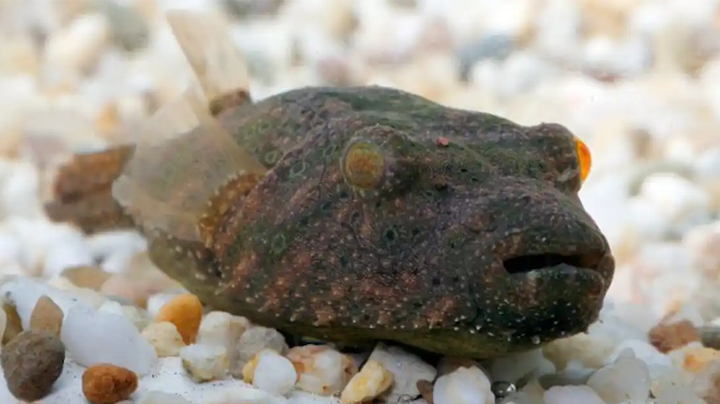Betta fish antibiotics are a beautiful and popular type of freshwater fish. They are renowned for their colorful patterns and large fins. However, bettas are also susceptible to infections and diseases. One way to treat these infections is with antibiotics. Antibiotics can be bought at most pet stores or online.
It is important to consult a vet before using antibiotics on your betta fish. This is because some antibiotics can be harmful to bettas.
How Do You Treat A Bacterial Infection In A Betta?
Natural antibiotics and synthetic antibiotics are the two main treatment options for bacterial infections. Although the latter is more powerful, the former is known to be safe.
Natural Antibiotics
Betta fish are a popular choice for pet owners because of their vibrant colors and relatively easy care. But like all animals, bettas can get sick. A bacterial infection is a common ailment in bettas and can be treated with natural antibiotics.
There are several natural antibiotic options that betta owners can choose from. Some of these include garlic, apple cider vinegar, salt, and turmeric.
Ginger-
Yes, natural antibiotics can treat a bacterial infection in a betta. The most common and effective natural antibiotic is ginger. Ginger has antibacterial and anti-inflammatory properties that make it an effective remedy for treating bacterial infections. To use ginger as an antibiotic, steep one teaspoon of grated ginger in a cup of boiling water for five minutes. Strain the mixture and drink it three times a day.
Garlic
Garlic – Another typical cooking spice with antibacterial qualities is garlic. They can be used to treat viral, bacterial, and fungal infections.
Turmeric –
Spices with anti-inflammatory and antibacterial effects include turmeric. They can be used to treat illnesses and betta infections.
Pharmaceutical Antibiotics
Pharmaceutical antibiotics are man-made drugs that treat infections. They are different from natural antibiotics, which are substances that occur naturally in the environment and kill or inhibit the growth of bacteria. Pharmaceutical antibiotics are designed to target specific bacteria, and they can be taken orally or applied topically.

There are many different types of pharmaceutical antibiotics, and they are used to treat a wide variety of bacterial infections. Some common infections that can be treated with antibiotics include ear infections, strep throat, urinary tract infections, and skin infections. Antibiotics can also be used to prevent infection in people who have been exposed to certain bacteria, such as those who have had surgery or who have a weakened immune system.
It’s crucial to choose an antibiotic that works well against the particular strain of bacteria causing the infection.
About Fish Antibiotics
Fish antibiotics are becoming a popular way to treat infections in bettas. However, there is some concern that these drugs may be inhibiting the immune system of these fish.
Skin, ear, and respiratory infections are all common in bettas. These infections can be caused by a variety of single-celled organisms that are present in water and soil.
Fish antibiotics are typically effective at treating these types of infections. However, there is some evidence that they may also be causing harm to the immune system of bettas. This could potentially lead to more serious health problems down the road.
More research is needed to determine the full extent of the effects of fish antibiotics on bettas. In the meantime, it is important to weigh the risks and benefits before using these drugs on your fish.
Fish Antibiotics are a group of drugs used to treat infections in fish. They can be given intramuscularly or intravenously. The most common fish antibiotics are tetracycline, erythromycin, and kanamycin. Fish antibiotics are available in tablets, capsules, powders, and liquids.
Antibiotics for fish are medications that are used to treat fish infections. They are similar to the antibiotics that are used to treat infections in humans, but they are not exactly the same. There are a few different types of fish antibiotics, and they all work in different ways. Some of the most common fish antibiotics are:
Penicillin is one of the most commonly used fish antibiotics. It works by preventing bacteria from growing and multiplying. Penicillin is usually given intramuscularly, but it can also be given orally.
Erythromycin is another common fish antibiotic. It works by killing bacteria or preventing them from growing and multiplying. Erythromycin is usually given intramuscularly or orally, but it can also be given intravenously.
Tetracycline is another type of fish antibiotic.
Ciprofloxacin is a broad-spectrum antibiotic that is effective against a wide range of bacteria. It is commonly used to treat infections of the skin, respiratory tract, and urinary tract.

How Do Antibiotics Work?
Bacteria are single-celled organisms that can cause infections. Antibiotics are drugs that kill bacteria or stop them from growing. Bacteriostatic and bactericidal antibiotics are the two primary categories.
Bactericidal antibiotics kill bacteria. They do this by inhibiting the growth of the bacteria or by killing the bacteria outright. Antibiotics that are bacteriostatic operate by preventing bacterial growth. As a result, the germs are unable to multiply and spread.
Antibiotics are used to treat bacterial infections. They can be administered topically, intravenously, or orally. Oral antibiotics are taken by mouth in pill or liquid form. Injected antibiotics are given as shots. Topical antibiotics are applied to the skin, ear, or eye in the ointment, cream, or drop form.
Antibiotics are medications that combat bacterial illnesses. They function by eradicating the germs or stopping their growth. There are many different types of antibiotics, and each one works a little differently.
Some antibiotics work against gram-positive bacteria, while others work against gram-negative bacteria. Erythromycin is an antibiotic that works against a variety of bacteria. It is often used to treat respiratory tract infections, skin infections, and ear infections.
Things To Consider When Giving Fish Antibiotics
Antibiotics are not common treatments that you should feed your fish without thought. When administering medicines to your fish, you must exercise extreme caution because there are a few factors to take into account.
The Dosage
When giving fish antibiotics, there are a few things to consider. The dosage is important – 10-20 mg L erythromycin 5-10 mg L. Make sure you follow the instructions on the label carefully. Also, be sure to keep an eye on your fish and monitor their behavior closely. If you notice any adverse effects, stop giving the medication and seek professional help.
- When considering giving fish antibiotics, there are a few things to take into account. The age and weight of the fish are the two most important factors. For a 3-4 gram fish, the recommended dosage of ampicillin is 10-20 mg per liter. For a 1-2 gram fish, the recommended dosage is 5-10 mg per liter.
- Another thing to consider is the type of infection the fish has. Some infections are more resistant to antibiotics than others, so it’s important to consult with a veterinarian beforehand.
- Finally, it’s important to make sure that the fish has access to clean water while taking antibiotics. This will help prevent any further infections and ensure that the medication is effective.
The Length Of Treatment
When you are treating a fish infection, there are a few things to consider in regard to the length of treatment. The general rule of thumb is that if the infection is 5-10 days old, you will need to treat it for 5-7 days. If the infection is 10-14 days old, you will need to treat it for 10-14 days.
However, there are other factors that can affect the length of treatment, such as the severity of the infection and the type of fish. If you are unsure about how long to treat your fish, it is always best to consult with a veterinarian.
The Type Of Antibiotic
When giving fish antibiotics, there are two main types to consider: bactericidal and bacteriostatic. Bactericidal antibiotics kill bacteria outright, while bacteriostatic antibiotics merely prevent the bacteria from multiplying.
There are pros and cons to both types of antibiotics. Bactericidal antibiotics are often more effective at treating infections, but they can also be more harmful to the fish if not used correctly. Bacteriostatic antibiotics are generally considered safer for long-term use, but they may not be as effective in treating acute infections.
Ultimately, the decision of which type of antibiotic to use should be made based on the specific situation and advice from a qualified veterinarian.

The Side Effects
Fish Antibiotics: Things To Consider
When giving fish antibiotics, there are a few side effects to consider. The most common side effect is loss of appetite, followed by lethargy. These two symptoms are usually the result of the fish’s immune system being suppressed by the antibiotic. In some cases, increased susceptibility to disease and infections can also occur.
It is important to weigh the risks and benefits of giving fish antibiotics before doing so. If the potential benefits outweigh the risks, then it may be worth considering. However, if the risks seem to outweigh the benefits, it is best to avoid giving fish antibiotics altogether.
Nitrifying Bacteria
When it comes to medicating your fish, there are a few things to consider before reaching for antibiotics. First and foremost, know that some fish are sensitive to antibiotics like erythromycin and sulfa drugs.
Secondly, be aware that nitrifying bacteria in your fish tank will break down ammonia, so you may need to add more during treatment.
Finally, it’s always a good idea to have a quarantine tank on hand in case of sickness. By following these simple tips, you can ensure a healthy and happy aquarium!
Use Of Antibiotics In Healthy Betta Fish
When considering giving antibiotics to a healthy betta fish, there are a few things to take into account. First and foremost, it is important to understand that while fish do not get sick as often as other pets, they can still contract diseases. If your fish does become sick, it is important to consult with a veterinarian who specializes in treating fish before administering any medication, including antibiotics.
Another thing to consider is that not all antibiotics are created equal. There are different types of antibiotics that are used to treat different types of infections. It is important to select the antibiotic that is best suited for the type of infection your fish has. Otherwise, you run the risk of the infection becoming worse or even resistant to treatment.
Lastly, it is important to follow the directions on the antibiotic packaging carefully.
Using Human Antibiotics On Fish
The use of human antibiotics on fish is a controversial topic with many things to consider. Some believe that it is necessary in order to keep fish populations healthy, while others believe that it is a form of animal cruelty. Here are some things to consider when giving fish antibiotics.
- Are antibiotics necessary? If the fish are healthy and not displaying any signs of illness, then there is no need to administer antibiotics.
- What kind of antibiotic will be used? There are many different types of antibiotics available, so it is important to choose one that will be effective against the specific type of bacteria present in the water.
- How will the antibiotic be administered? Antibiotics can be administered in a variety of ways, including through food, injections, or baths.

Betta Fish Antibiotics
Antibiotics are commonly used to treat bacterial infections in humans, but did you know that they can also be used to treat betta fish? If your betta fish is suffering from a bacterial infection, it’s important to consult with a veterinarian before giving them antibiotics. This is because bettas are very sensitive to antibiotics and the wrong dosage could do more harm than good.
Betta fish are labyrinth fish, which means they have a labyrinth organ in addition to their gills. This allows them to live in water with very low oxygen levels. However, this also makes them susceptible to stress and disease.
There are several common betta fish antibiotics that can be used to treat infections. These include erythromycin, Terramycin, furazolidone, kanaplex, amoxicillin, and Keflex. Tetracycline and sulfa drugs are also sometimes used.
It is important to note that not all antibiotics will work for all infections. It is important to consult with a veterinarian before starting any treatment regimen.
How Do You Medicate A Sick Betta?
A sick betta can be treated with medicine in a number of ways.
Mix The Medication Into The Water
The first step is to mix the medication into the water. You will need to follow the instructions on the bottle. The next step is to add the fish to the tank. Make sure that you do not add too many fish at once. The last step is to monitor the fish closely.
Mix The Medication With Food
A sick betta fish needs medication in order to get better. The first step is to crush the pill into a powder. This will make it easier for the fish to digest and will ensure that the medication is always effective. The next step is to mix the powder with food. This way, the fish will not be able to taste the medication and will be more likely to eat it.
Finally, it is important to monitor the fish closely after giving them the medication. This way, you can make sure that they are getting better and that the medication is working properly.
Use Bath Treatment
If your betta fish is sick, you may be wondering how to medicate them. The good news is that it’s actually quite simple. All you need to do is give them a bath in a cup or bowl of water with the medication added. Let them soak for about 30 minutes, then put them back in the fish tank. You may need to repeat this process a few times to ensure they are getting enough of the medication.
Injection
Injecting medication into a sick betta can be a quick and effective way to treat many illnesses. It is important to use a clean needle and syringe and to follow the instructions on the medication label carefully. Injecting medication into a betta can be stressful, so it is important to handle them gently and avoid injecting more medication than necessary.

Conclusion: Betta Fish Antibiotics
In conclusion, betta fish antibiotics can be a helpful way to keep your fish healthy and free from infection. However, it is important to remember that these antibiotics should only be used as directed by a veterinarian, and you should never give your fish more than the recommended dosage. With proper care and the use of antibiotics, you can help keep your betta fish healthy and happy for years to come.
FAQS
How Do You Give Tetracycline To A Betta Fish?
Tetracycline is an antibiotic that can be used to treat a wide variety of infections in betta fish. It is important to follow the directions on the medication label carefully when giving tetracycline to your betta fish. The recommended dose of tetracycline for betta fish is 10-20mg/L.
To treat a betta fish with tetracycline, first, remove any carbon from the filter. Then, add the appropriate amount of tetracycline to the tank water. The duration of treatment depends on the severity of the infection but is typically 5-10 days. After treatment, it is important to perform a large water change and replace the carbon in the filter.
Is Bettafix An Antibiotic?
No, Bettafix is a product that is often thought to be an antibiotic, but it is not. Bettafix actually has no antibacterial properties. It does have some infection-fighting capabilities, but it is not an antibiotic.
Can I Use Kanaplex For Betta Fish?
Yes, Kanaplex is a broad-spectrum antibiotic that can be used to treat different types of infections in betta fish. However, it is important to note that Kanaplex should only be used as a last resort after other treatment options have failed. This is because Kanaplex can cause side effects such as gastrointestinal distress and kidney damage. Therefore, it is important to consult with a veterinarian before using Kanaplex on your betta fish.







